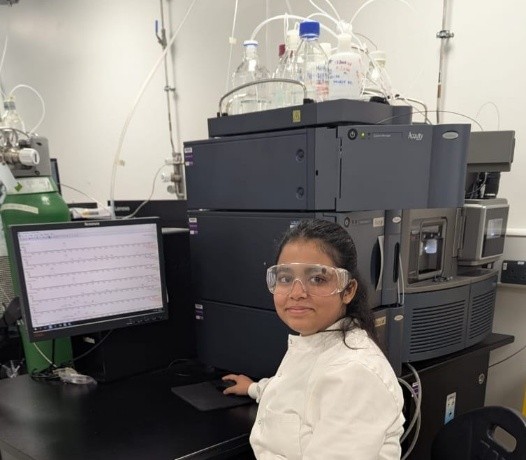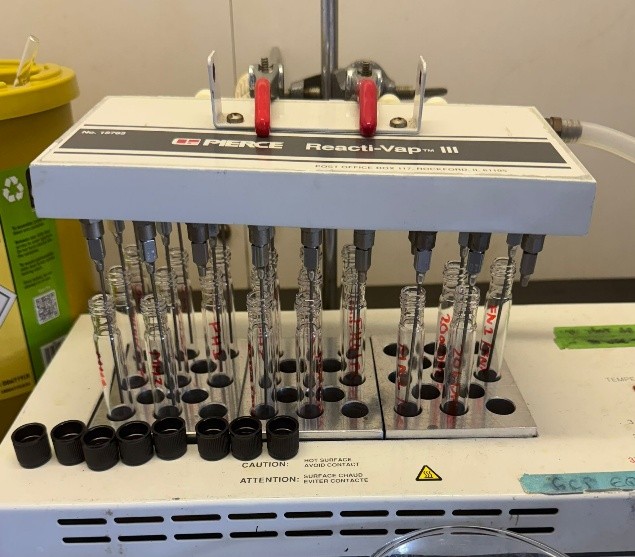2025 Summer Studentship student Mariyam reflects on her research project
Mariyam was joint funded by the BMSS and ChromSoc to develop analytical methods for characterisation of salivary steroids using LC-MS/MS and GC-MS at the University of Birmingham. Dr Angela Taylor supervised her research project to successfully investigate 66 steroids within saliva! We asked for her reflections on the benefits of doing a research project in the summer studentship programme.

A day in the lab: What I did
Each day brought something new to learn. Putting on the white lab coat instantly created an atmosphere charged with curiosity and exploration. My research project aimed at determining the salivary steroid profile using mass spectrometry. My work in the lab included extraction of steroids from human saliva samples using techniques like liquid-liquid extraction and solid-phase extraction, followed by derivatization and centrifugation. I utilized the LC-MS and GC-MS analytical systems along with data analysis tools like Microsoft excel and R for the investigation and categorization of steroids.
Skills I learnt beyond textbooks:
Throughout this studentship, I learnt many analytical, technical and lab skills which included: precision in sample preparation, hands-on working with platforms like LC-MS and GC-MS, integration of chromatograms and interpretation of raw data, data analysis and communication of scientific data through presentations, reports and posters.
What truly fascinated me.
I thoroughly enjoyed applying theoretical knowledge of mass spectrometry into using LC-MS and GC-MS in a real lab environment. Another highlight was dealing with large dataset generated by the mass spectrometry and transforming it into more meaningful patterns of graphs and tables to make it interpretable and using it to categorize 68 steroids based on quantification and detection status. Beyond technical work, I deeply valued the collaborative environment that created a space for knowledge exchange which profoundly enriched my understanding of the topic. I was intrigued to know about the use of saliva as a non-invasive biofluid in clinical diagnostics.

How this experience will benefit me in future.
This opportunity has given me an invaluable insight into realities of working under lab settings. It strengthened my competence in handling range of lab equipment and performing analytical techniques with confidence. As a biochemistry student, I have always learnt about the crucial role of mass spectrometry, so acquiring practical experience to use it for salivary steroid profiling has set my foundational understanding of its utility in clinical practice and has fuelled my passion to pursue a career in research.


